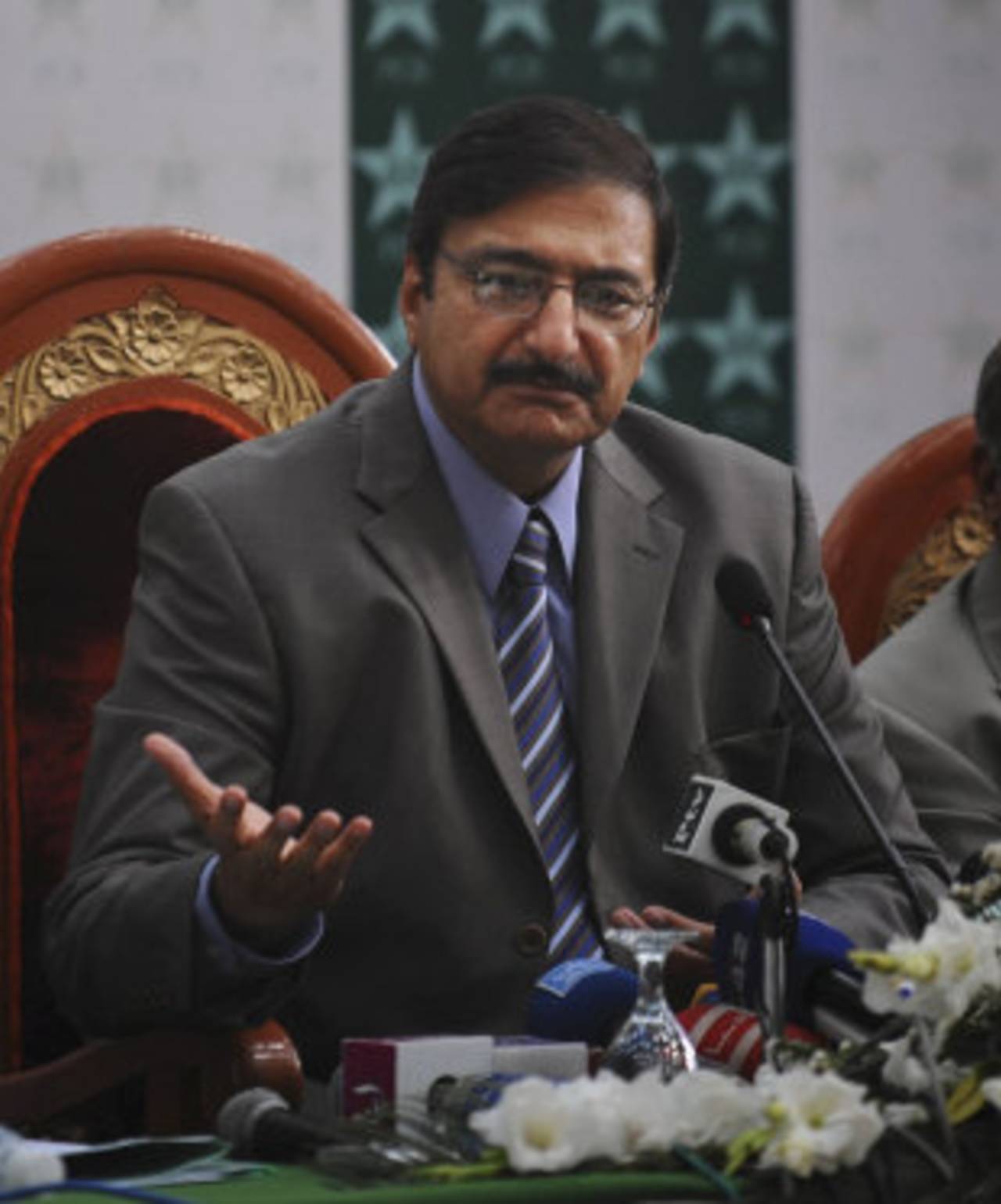The two-judge bench of the Islamabad High Court (IHC) has released its detailed judgment, citing the removal of Zaka Ashraf from the post of PCB chairman as against the principle of "natural justice". According to the judgment, a copy of which ESPNcricinfo has obtained, Ashraf was removed without being given the chance of a hearing.
Following the High Court ruling on Wednesday, Ashraf has been
reinstated as PCB chairman and the cricket board stands restored with effect from May 25, 2013 - the day it was suspended by the IHC. The governing board, which was earlier dissolved, will also be reinstated. During the interim period, the PCB had signed short-term broadcasting deals, awarding the broadcast rights of the South Africa and Sri Lanka series to Ten Sports and Geo Super respectively and also appointed Moin Khan as the team manager. According to the judgement, the above decisions are still valid.
"The respondent Chaudhry Muhammad Zaka Ashraf was removed from the post of the Chairman, PCB in violation of the principle of natural justice," the judgement stated. "As no opportunity of hearing was provided to him as the time of removal, so by setting aside the impugned judgment we order restoration of Zaka Ashraf as chairman PCB."
A single judge bench headed by Justice Shaukat Aziz Siddiqui last year had asked for changes in the structure of the PCB after hearing the writ petition filed by a former Rawalpindi Cricket Association official against the board elections held in May, when Ashraf was elected chairman for a four-year term under the new PCB constitution. The court had
suspended Ashraf and questioned the legality of his election, calling the process "dubious" and "polluted".
Both Ashraf and the PCB appealed against the Siddique-judgment and the IHC subsequently formed a two-judge appellate bench, naming Justice Riaz Ahmad Khan and Justice Noor-ul-Haq Qureshi to hear the appeal. Both, after lengthy hearings, released their judgements on Thursday, allowing Ashraf to resume office.
Following Ashraf's suspension, Najam Sethi was
appointed the interim chairman of the PCB. The Siddique-judgement, however, had directed the Election Commission of Pakistan (ECP) to carry out
fresh elections for the post of chairman within 90 days. But Sethi failed to hold those elections and instead, just before the deadline on October 15, the prime minister of Pakistan - the new patron of the PCB according to the court - Nawaz Sharif, dissolved the governing board of the PCB, and formed a five-member Interim Management Committee (IMC), headed by Sethi, to administer cricket in the country.
The latest judgement, however, did not overrule any of the decisions made by the IMC. "All decisions taken by PCB or IMC during the interim period would be considered as legal and would stand validated. Since the appointment of the Interim Management Committee was temporary, so with the pronouncement of this judgment, the said committee would stand dissolved. The situation for the PCB would come back to the day when the writ petition was filed."
The judges appellate bench, dismissed the original petition filed by Ahmad Nadeem Sadal, who first contested Ashraf's election. Sadal happens to be a former official of the Army Cricket Club in Rawalpindi, and the judges questioned how his fundamental rights were affected by Ashraf's presence as chairman.
"The petitioner was also required to establish direct or indirect injury to him and substantial interest in the proceedings," the judgement stated. "In the present case, the petitioner had nothing to do with the post of chairman, PCB. By appointment of the said chairman, no loss was caused to the petitioner, no right had been infringed; he was not a contender for the post of chairman, PCB and he has no cause of action or locus standi to file writ petition."
Historically, the PCB has been an autonomous body with the country's president as its Patron. But the Siddiqui-order named the prime minister as the new Patron, taking away all powers from the president. The fresh judgment, however, didn't overturn the order and the prime minister remains the Chief Patron.
